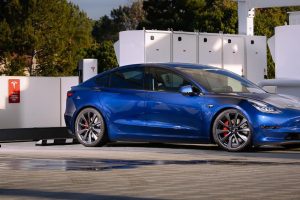- 🌐 The Brazilian Supreme Court has ordered Elon Musk to pay 10.3 million reais (~$1.9 million) to lift the ban on X in Brazil, as detailed in a recent court filing.
- 📡 Musk allegedly used SpaceX’s Starlink to make X accessible despite the ban, leading to a significant fine and legal actions.
- 📜 A legal representative of X in Brazil is also required to pay an additional 300,000 reais (~$55,209 USD) due to non-compliance with the court order.
- 🇧🇷 The return of the X platform in Brazil hinges on full adherence to Brazilian law and respect for the country’s judicial orders.
- 💻 Musk advised Brazilian users to bypass the ban by using a VPN to access X, risking further fines.
In a striking clash between technological ambition and national legislation, Elon Musk finds himself at the heart of a legal storm in Brazil. Following a recent Supreme Court order, Musk is obliged to pay a hefty sum to lift the ban on his social media platform, X, in the country. This unfolding drama highlights the challenges tech giants often face when their global operations intersect with national laws.
The Legal Struggle Unfolding
The Brazilian Supreme Court’s decision is a landmark ruling that underscores the tension between global tech initiatives and local judicial systems. Ordered to pay approximately $1.9 million, Musk has been drawn into Brazil’s complex legal landscape. This financial penalty reflects the seriousness with which Brazil views the need to comply with its digital laws.
Understanding the Court’s Decision
- Nature of the Fine: The 10.3 million reais fine emerged after Musk allegedly bypassed Brazil’s ban on X by utilizing SpaceX’s Starlink satellite network. This move was perceived as a direct challenge to Brazil’s digital sovereignty.
- Additional Legal Repercussions: Beyond Musk’s personal liability, X’s legal representative in Brazil, Rachel de Oliveira Villa Nova Conceição, has been fined an additional $55,209 due to non-compliance. This highlights the broader legal implications for those involved with the platform locally.
The Role of Technology in Legal Conflicts
Musk’s case also illuminates the pivotal role of technology in legal conflicts, especially concerning jurisdictional challenges that arise with internet-based services like X.
The Starlink Factor
- Global Connectivity vs. Local Laws: SpaceX’s Starlink aims to provide global internet access, potentially circumventing national controls. The use of such technology to maintain X’s accessibility despite a ban has brought Musk into conflict with Brazilian authorities.
- Potential for Fines: Musk’s encouragement for users to access X via VPNs and Starlink only deepened the legal consequences he faces, with the risk of additional fines looming over the platform and its users.
Navigating Compliance: Challenges and Implications
The Brazilian legal requirements highlight a significant challenge for global tech companies: the necessity of balancing innovative expansion with adherence to local laws. As Musk seeks to overturn Brazil’s ban on X, understanding and complying with these legal expectations will be crucial.
Compliance Strategies for Global Tech Firms
- Invest in Local Legal Expertise: Hiring in-country legal counsel is essential to navigate the nuances of local regulations effectively.
- Foster Transparent Communication: Establishing clear lines of dialogue with national regulatory bodies can preempt legal disputes and foster entrepreneurial goodwill.
- Adapt Technology Offerings: Aligning technological deployment with national laws can mitigate risks and enhance compliance.
Conclusion: The Future of Global Tech and Sovereignty
The intersection of technological innovation and national law is an evolving landscape. The outcome of Musk’s legal challenge in Brazil may set precedents for how global tech firms navigate compliance across different jurisdictions. As nations like Brazil assert their sovereignty in the digital realm, this case may become a template for future tech-related legal battles worldwide.





